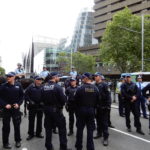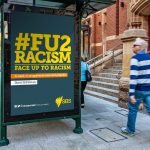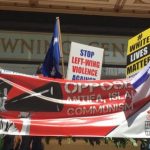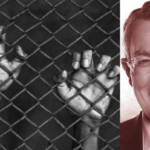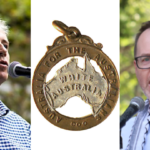Australia Called Out on Appalling Track Record of Systemic Racism and Human Rights Abuses
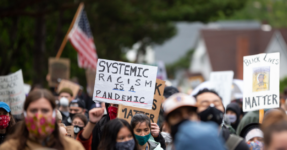
Australian politicians and the mainstream media are up in arms about China’s foreign ministry spokesperson, Lin Jian, accusing our nation of ‘being plagued by systemic racism and hate crime’.
Mr Jian drew attention to Australia’s appalling record on human rights, which has seen First Nations people and ‘foreigners’ treated as second class citizens for generations, whether they be multi-generation ethnic minorities, recent migrants or foreign students.
Mr Jian also highlighted our nation’s commission of war crimes in nations such as Afghanistan (as exposed in the Afghan Files), Iraq and presently in the Middle East (Gaza, Yemen and Lebanon). The spokesperson has expressed the view that, that while our politicians frequently accuse China of human rights abuses, Australia has been implicitly involved in atrocities in foreign nations, predominantly against Muslims in situations that are unjustified in law, in countries we have no business invading.
But rather than take heed to the criticisms, which have been levelled against our nation for many years by several reputable human rights organisations, including the United Nations, Amnesty International and Human Rights Watch, the media and politicians have rejected them outright, seemingly preferring the protect the status quo and their own positions of privilege and power.
The Truth Hurts
And while Mr Jian’s remarks are factually accurate, they appear to have hurt the feelings of our prime minister Anthony Albanese, who flippantly dismissed the charge – just as successive governments have for failed to address the issue of systemic racism in our nation.
Australia has a generations-long history of systemic racism and other human rights abuses at the hands of law enforcement agencies, politicians and the criminal justice system.
Mr Jian highlighted the hypocrisy of Australia having the gall to weigh in on China’s internal affairs for being a country that has glaring double standards on the issues of racism, exploitation, and prejudicial legislation.
“Australia, long plagued by systemic racism and hate crimes, has severely violated the rights of refugees and immigrants and left Indigenous people with vulnerable living conditions. Australian soldiers have committed abhorrent crimes in Afghanistan and other countries during their military operations overseas.”
In retort, Albanese stated, “We, of course, will always stand up for Australia’s interests.”
This statement is ironic in so many ways. Australia is a nation of Aboriginal and Torres Strait Islander peoples. Therefore, ‘standing up’ for Australia’s best interests would involve fighting for the rights of every single person living in the country, especially those who were the original inhabitants.
But, ever since British colonialism in the 1700s, Australia has done everything within their power to push out the Indigenous population through brute force, exploitation, racism, lack of opportunity, fewer resources, and prejudicial laws.
Systemic Racism in Australia – A Fact, Not an Opinion.
This urgent issue demands our immediate attention and action. Racism has been proven to be one of the main sources of injustice in Australia. In recent years, there has been a push for more quantitative research on the impact racism has on society, legal bodies, and healthcare, but little has been done to actually address the issue and see steps toward real change.
‘Racism’ is a historical and cultural system of oppression that creates hierarchies, or varying levels, between groups of people based on differences in ethnic and cultural backgrounds. These hierarchies lead to advances towards the superior group, or white Australians, and disadvantages towards the inferior groups, which are ethnic minorities within the country.
Systemic racism has been expressed in Australia in the form of prejudice, discrimination, poor media representation, unfair policies, racist practices, and reinforced stereotypes such as the ‘lazy Aboriginal’ or ‘violent Indigenous person ‘. These stereotypes, along with social group ways of thinking, such as xenophobia, perpetuate the systemic issues within the country.
Racism within Australia is not a new concept; it was the foundation on which this country was established. The weight of this legacy is felt in every aspect of our society, from our policies to our online interactions.
A 2014 General Social Survey showed that 34% of respondents experienced racial or ethnic discrimination, whereas a Face Up to Racism survey the following year had an even higher number, between 35-40%. However, the reality is much more sinister — almost 80% of individuals in the Face Up to Racism survey agreed that prejudice is rampant in Australia. In comparison, 86% of respondents in the Geographies of Racism survey confirmed the suspicions.
Racist incidents don’t just happen in specific circumstances, either. They are a pervasive part of everyday life, from public transport to online interactions.
Hate Crimes Towards Indigenous Australians
Hate crimes in NSW and across the nation are prevalent, and many believe becoming more so with the rise of far right nationalism — but these crimes are often inadequately investigated and go unprosecuted.
Despite new legislation to combat the ever-prevalent hate crimes, little has been done to address the systemic issues that cause the discriminatory way of thinking or acting in the first place.
Hate crimes can be traced back to the arrival of the first European Settlers in the country, with the British claiming the Indigenous peoples’ land without a treaty, exploiting them for their labour, and denying them citizenship and voting rights until the 1960s.
One in seven Aboriginal and Torres Strait Islander people have been the victim of a hate crime within the last year, with Indigenous peoples experiencing online hate speech more than 2x the national average. Almost 60% of Indigenous people experience some discrimination or hate crime ‘every day’, with 97% of Indigenous people living in Vitoria experiencing a hate crime or racist incident within the last 12 months.
Human Rights Violations to Indigenous People
Along with systemic racism, there are numerous human rights violations towards Indigenous peoples in Australia. United Nations Special Reporter James Anaya stated that ‘the violations of the Indigenous peoples are deep, systemic, and widespread.’
Indigenous peoples are constantly fighting an uphill battle when it comes to fair and equal treatment regarding resources, healthcare, justice, and education. Conservation programmes are aimed at preserving the natural environment, but do so in place of the Indigenous peoples’ rights — an irony that is not lost on the First Nations people.
Despite “mega projects” that are aimed at benefiting society as a whole, these initiatives will actually harm the Indigenous peoples, as they lead to more room for economic scarcity, self-determination, and lack of input in terms of the design of the new project. If Indigenous peoples have no right to decision-making, they will continually be left behind.
Not only do Indigenous peoples not have the same resources offered to their communities, but state authorities consistently violate them, face discrimination, and have restricted access to basic human needs, such as housing, healthcare, education, jobs, and safe spaces.
Lastly, forced assimilation in Australia led to an entire generation being ‘forgotten’ about. The “Stolen Generations” are a prime example of how white Australia has done their best to erase the Aboriginal and Torres Strait Islander’s existence from the land — the land that is rightly theirs — and aims to take away as much as possible from their culture moving forward.
Mass Incarceration of Indigenous Peoples
Along with the lack of resources and blatant discrimination, human rights violations extend so far as to see mass incarceration of Indigenous peoples that is vastly disproportionate to the number of Aboriginals left on Australian land. In 2023, First Nations people accounted for 33% of the prison population, despite making up only 3% of the country’s population.
“Hyperincarceration” of Indigenous peoples highlights the systemic racism prevalent in police forces in countries that have been colonised by British rule. Starting in the early 1800s, First Nations people were imprisoned, kept in missions, or sent to orphanages to force assimilation and take land from the rightful owners. This led to a trend of First Nations people being unfairly criminally charged for charges that would otherwise only result in a public order offence, leading to Indigenous individuals receiving much more severe charges than their white Australian counterparts.
Australia will not be able to solve the worrying trend of over incarceration if they do not address the two main issues — racism at every stage of criminalisation and an increase in the police force. Police are more likely to arrest and charge First Nations people, along with denying bail and all-white juries sentencing Aboriginal individuals, coupled with a 40% increase in the police force.
Is Australia Past the Point of No Return?
Is our nation past the point of no return when it comes to ingrained racism, discrimination, prejudice, and overt unfair treatment of minorities, especially Indigenous peoples? A pessimist may say, possibly. Australia would have to see a complete overhaul of its legal system, culture, society, and resources to provide Indigenous peoples with fair and equal treatment that could lead to better integration and collaboration between non-Indigenous and Indigenous communities. But an optimist might argue that change takes time, but is achievable, with the right education, legislative framework and media narrative.
Only time will tell whether our nation can put aside its past and current situation, and move towards a more positive and inclusive society for all.

